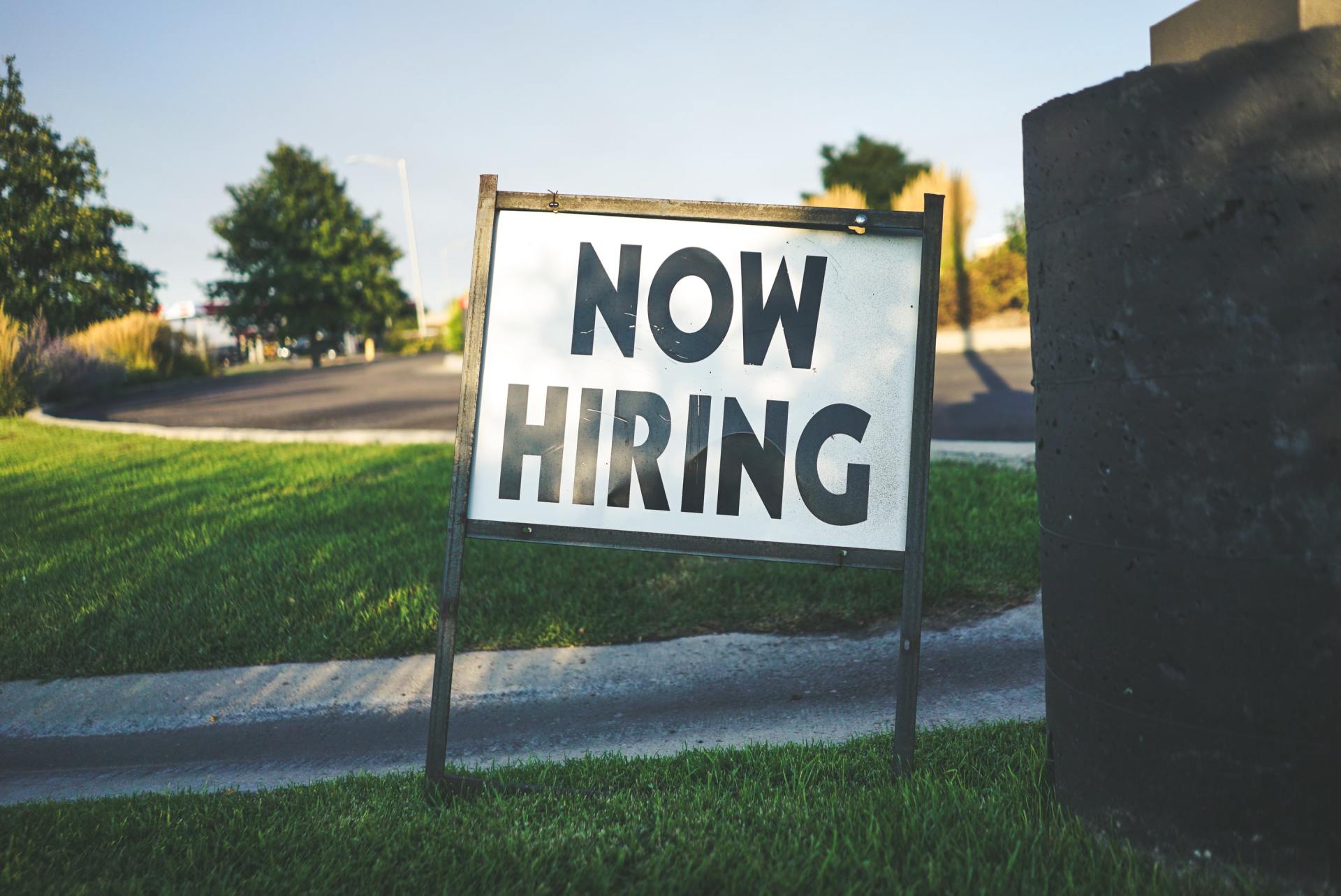


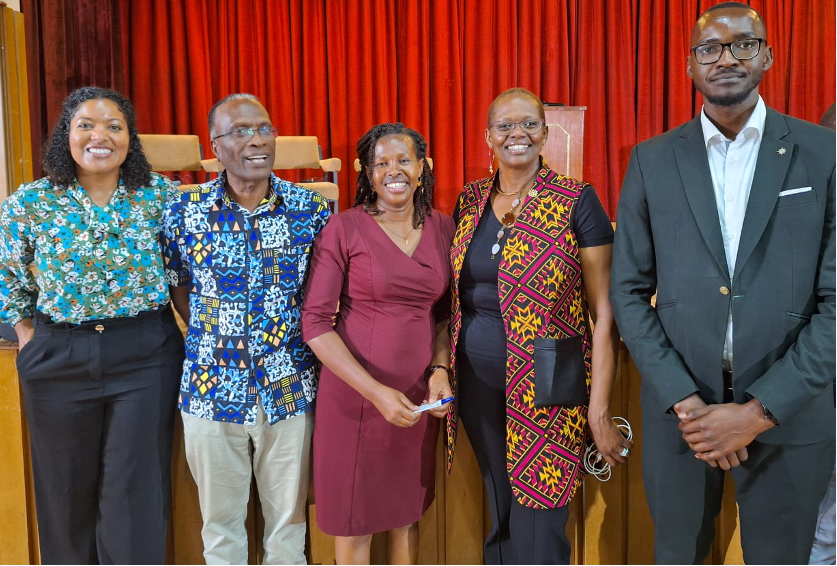
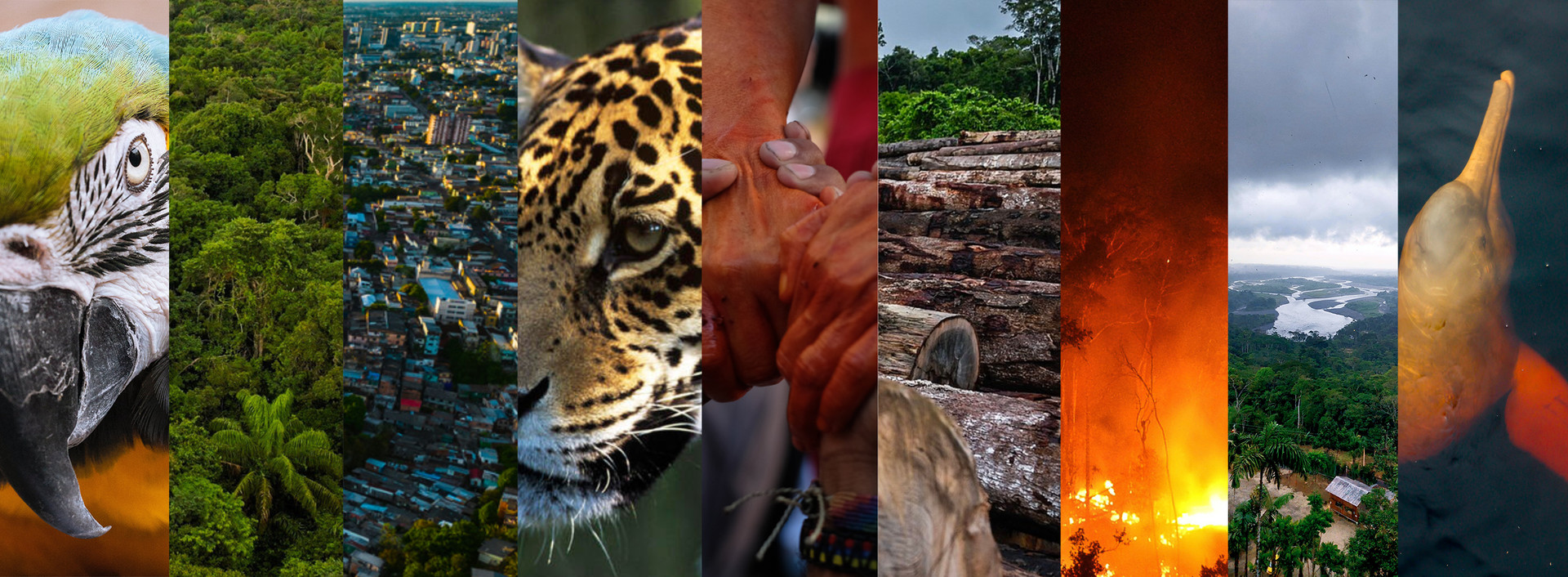
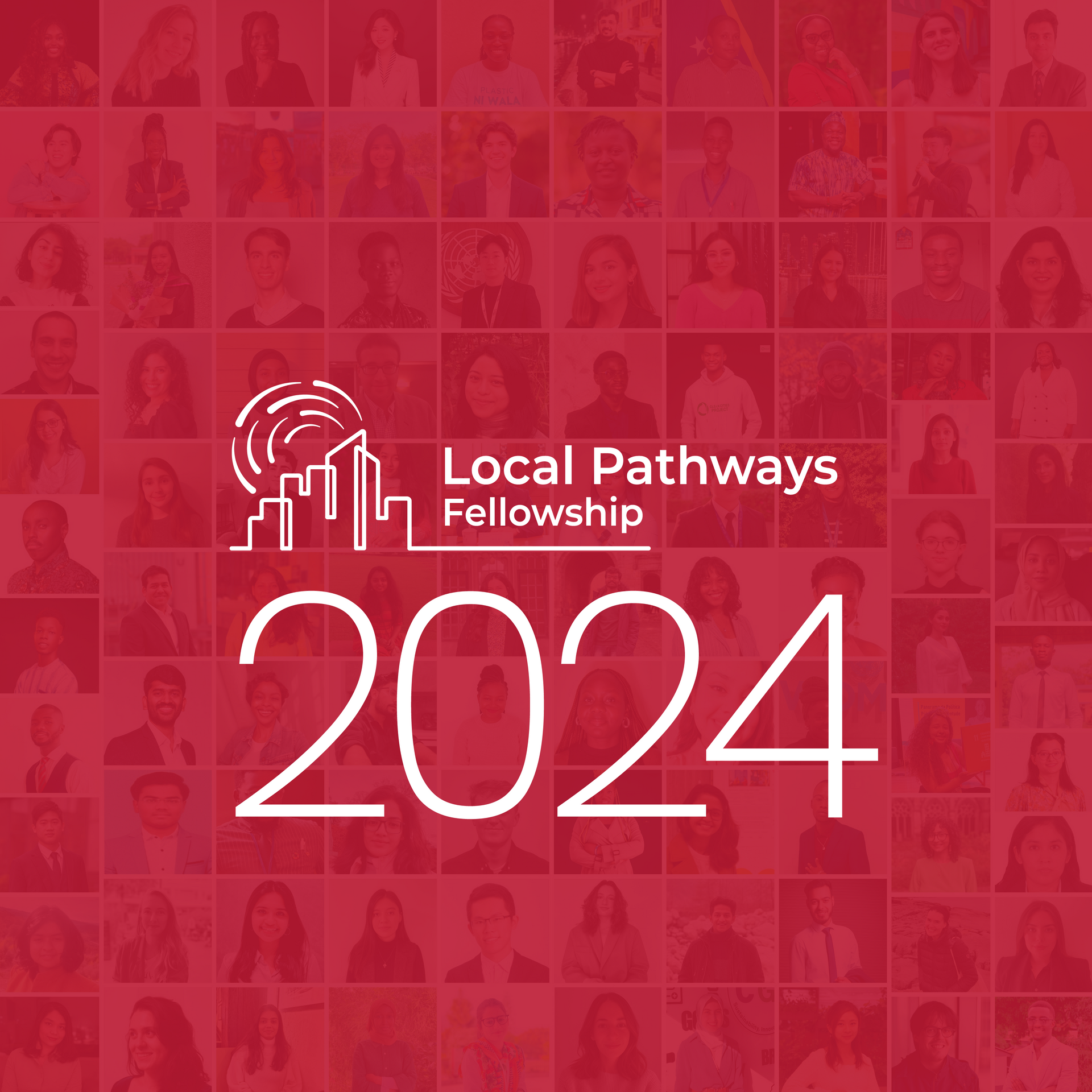
On November 10, the SDSN, Foresight4Food, IFAD, and APRA co-hosted the
fourth in a series of eDialogues on the future of small-scale farming.After unpacking the diversity of small-scale farmers and their regional
opportunities and challenges, this session assessed the options and
scenarios for an inclusive transformation of small-scale agriculture
with a focus on the specific challenges for different groups of farmers
given their scale, gender, assets or geographic and market context.
Three integrated strategies were discussed to improve the livelihood of
small-scale farmers, commercialisation, self-consumption and social
protection. How can these strategies be integrated with each other to
achieve a beneficial transformation for small-scale farmers?
Mario Herrero, Chief Research Scientist of Agriculture and Food at CSIRO
In different parts of the world, smallholders are in different trajectories of evolution.
Currently, in Sub-Saharan Africa, smallholders are still very abundant due to low opportunity costs of labour. Nevertheless, most farmers pursue off-farm activities next to farming as an additional income source.
Eventually, certain drivers will promote evolution in the areas in which small-scale farming is still of great importance.
Anyway, some challenges must be overcome for an evolution:
Felix Kwame Yeboah, Assistant Professor in the Department of Agricultural, Food and Resource Economics at Michigan State University
Smallholders have diverse needs in space and times. This requires a holistic approach for food security, poverty reduction and resilience. Hence, all three strategies have a positive impact on smallholders:
Commercialisation:
Self-consumption:
Social protection:
Proper integrative implementation of these three strategies is key and underlying assumptions for all strategies must be met:
Commercialisation:
Self-consumption:
Social protection:
Iris van der Velden, Director of Innovation & Insights at the Sustainable Trade Initiative IDH
IDH works together with the private and public sector. They co-fund innovations and interventions for food and cash crops.
Experiences with the private sector:
Nevertheless, the efforts of the private sector must be accompanied by the support of the public sector, e.g. provision of infrastructure or the right regulatory policies. Companies can offer services and inputs but cannot achieve cultural change that is for example needed when working on improving nutritious diets
Lastly, she shared that land size is an essential driver for poverty reduction. Land consolidation must take place to achieve a change.
Namukolo Covic, Senior Research Coordinator of the Agriculture for Nutrition and Health division from IFPRI
Poverty elevation and nutrition are intertwined and commercialisation should be part of the mix to promote livelihood development.
It is not practical or desirable that farmers only eat what they produce. It is not efficient at covering the needs of the population. For smallholders, the production of fruits and vegetables that can be self-consumed but also sold can be more efficient.
Social protection is a powerful tool for poverty elevation when it is structured to protect nutritional needs and productivity in times of need. It can help smallholders to recover from crises. A good example is the Ethiopia Productive Safety Net Programme: It has demonstrated to protect nutritional needs and sustain agricultural input expenditure to protect the next harvest in relation to the COVID-19 pandemic so far.
Public Investments, e.g. on infrastructure, must be made so that smallholder can meet their nutritional needs by using opportunities outside of farming to improve their livelihoods as an additional pathway. Therefore, commercialisation, improving agricultural production and the capacity to produce the next meal must be addressed as part of the big picture to avoid trade-offs.
Fabio Veras, Communications, publication and Research Coordinator of the IPC-IG
Social protection is a critical component of decreasing poverty and reducing hunger.
The coverage of social protection in rural areas is low. Next to social assistance and social cash transfer, social insurance is needed for the workers and farmers in rural areas.
Even if they are not integrated, social protection mechanisms have a positive impact on agricultural production through increased investments, food consumption, food security and nutrition.
However, social protection is not enough to eradicate poverty. It must be put into an integrative strategy to have an even higher impact and be more sustainable.
The impact on household-level is by easing the access to credits and capital investment to increase the cash flow. This must be supported by:
Clara Colina, Program Manager for Mastercard Foundation’s Rural and Agricultural Finance Learning Lab
Reconceptualising how we think about rural farmers is vital!
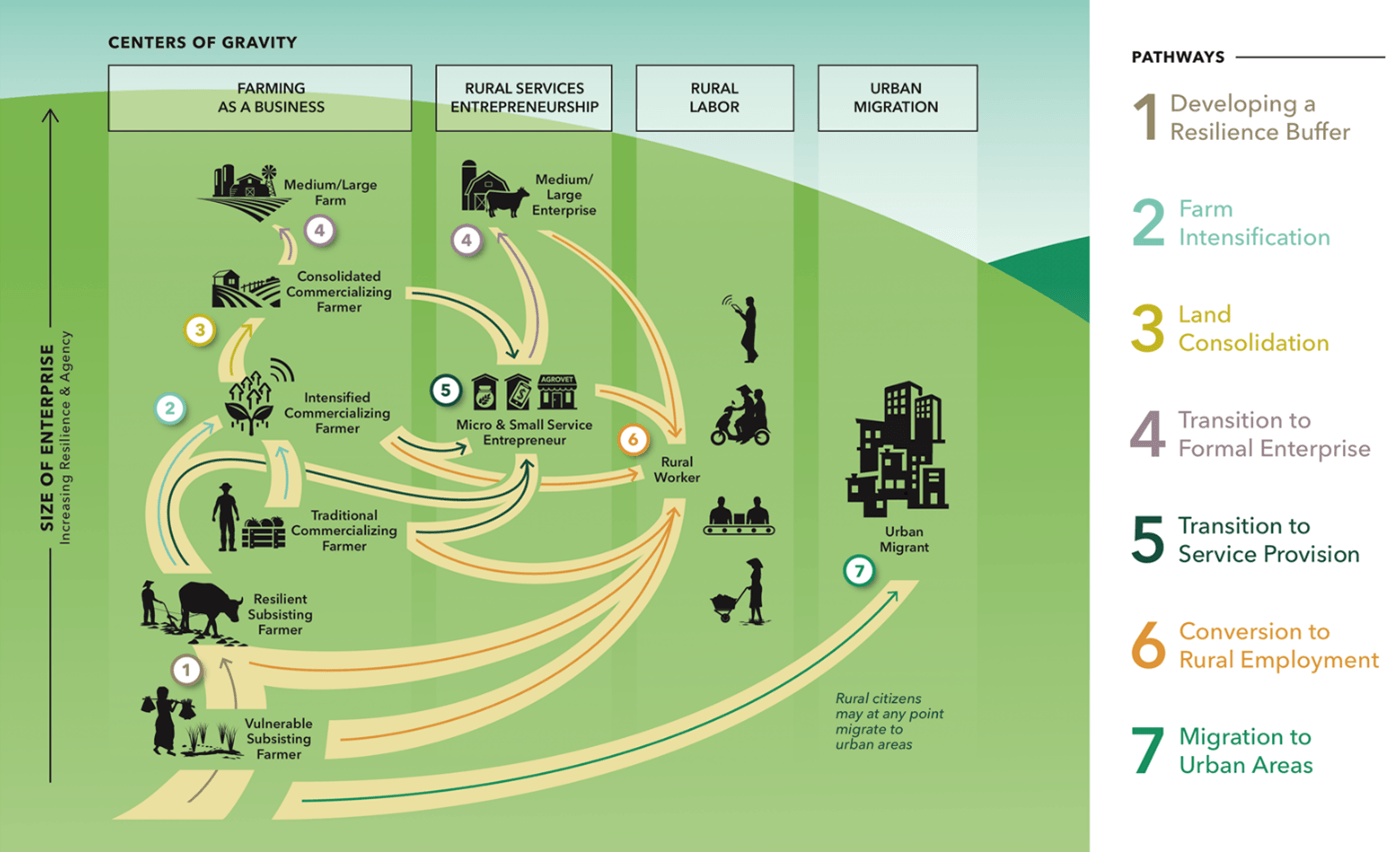
Four centres of gravity:
The effectiveness of commercialisation, self-consumption and social protection strategies strongly depend on the individual household. For subsistence farmers, for example, social protection is vital for transformation.
I. In India there are already elaborated social protection programme. Still, there are many ultra-smallholders with less than 0.25 ha. The rich diversity of smallholders breaks them down into different groups. For which group is commercialisation a sound strategy?
Mario Herrero: Medium-scale farmers are a good engine for rural development, as they have a positive impact on small-scale farmers.
Often there is lacking evidence for ideas on improving small-scale farmers livelihood:
For commercialisation pathways incentives are needed that would diminish the operational risk.
II. Is forming cooperatives a way of moving forward? Farm size is important but the profitability is also dependent on the produced goods.
Iris van der Velden: Many farmers are still below the living income threshold. Companies invest in training, inputs and access to finance but this is not enough.The way of procurement must be innovated. This could include contract farming, block farms, and further radical change like payment terms, cost + margin contracts and clean sheeting.
Furthermore, small- and medium-scaled farmers could and should exist next to each other. Complementary effects improve the market access and mechanisation of small-scale farmers. Hence, both farm groups must be supported to achieve food security.
IV: How realistic is that the private sector, interested in cash crops, effectively support smallholders, as this could reduce the farmers’ dependency and put the company at risk?
Iris van der Velden: In some sectors, companies do not have a lot of choices and thus invest in farms and take the risk.
Some crops are mostly produced by very small farms. Hence, companies create other option like building their own larger farms.
V. Diversification takes place on the household level but also on the level of the individual household member, pursuing different income sources. How can this be linked to producing a nutritious food basket?
Namukolo Covic
The food value chain development for nutritious food is limited as government programmes and investments have mostly focused on staple food. For smallholder to efficiently take up opportunities in food value chains, two challenges must be overcome:
Mario Herrero
When analysing the impact of diversification of small-scale farms, it is important to look at the landscape level. This helps to identify other services smallholders provide for which the could be payed for.
Iris van der Velden
The opportunity to pay for ecosystem services could be linked with companies’ need to offset or inset their carbon footprint? Can digital identities allow this linkage?
Fábio Veras
Digital identities and diversification allow a better linkage of social protection with other programmes like health, education and productive sectors. Nevertheless, there is a lack of coordination and coherence in the social protection sector and across sectors. The access to the uncovered population is still limited as critical technologies are missing.
Comment from Ken Giller: What is the potential of an ultra-basic income to provide the people with their basic needs on which they can build their livelihoods on?
So far, the discussion mostly takes place in developed countries but not in countries of need, like Africa. There, it could replace some subsidies and also eradicated some political barriers conventional subsidies face but there are some key challenges:
VI. What are the pathways of transformation?
Clara Colina
In Kenia, most household lack access to social protection schemes. In times of COVID, private sector providers try to bundle agriculture, health and life insurances with input support, as resilience buffers. Flexible repayments are crucial for farmers to react to time-specific cash needs.
Comment from Ken Giller: Are we ignoring the fact that self-production is an essential part of the safety nets? Furthermore, could external employment not rather be complimentary than a substitute for farming?
It is important to capture what the households strive for. Anyway, most of the household are at least partially involved in farming.
Picking up the previous comment from Mario Herrero on the quality of rural labour compared to small-scale farming, the quality of rural labour can differ by a lot. Nevertheless, rural labour helps to create a vibrant rural ecosystem that can employ man people inside and outside of agriculture.
Felix Kwame Yeboah
Self-consumption is important but smallholder must produce the right mix of products which must be incentivised by government policies.
Additionally, intra-household dynamics influence the food consumption of individual household members.
Social protection programmes need to be flexible in targeting and reevaluating the status of individual households since shocks can change the status of a household drastically. Community-based targeting solve this issue because in the community they know who is in need!
Fábio Veras
There must be guaranteed markets for smallholder farmers after incentivising high-value crop production. School feeding programmes could promote a diverse and nutritious diet but also push diversification.
Mario Herrero
It is important that the youth moves to cities and provides the families with remittances, as guarantees income and enables land consolidation. Hence, it is crucial to identify the farms should be targeted by development projects based on their income sources.
Namukolo Covic
Food availability and more capital do not necessarily result in better diets. Wealthier households tend to have aspirations for unhealthy products like fast food.
Developing a vibrant rural ecosystem like proposed by Clara Colina is crucial for rural and peri-urban areas. It is a good entry point for reaching a nutritious food supply.
Social protection mechanisms are needed but often too dependent on donor funding. It can be a double-edged sword if governments promise social protection but are not able to deliver, they can face riots.
VII. What is the role of the increasing population pressure?
Namukolo Covic
The situation differs slightly in the countries, their availability of arable land and the migration rate.
A vibrant rural ecosystem is needed to absorb labour and allow the formation of creative businesses. It is the responsibility of the government to push this development through infrastructure and service delivery investments.
Felix Kwame Yeboah
For job creation in the off-farm sectors, increasing agricultural productivity is crucial. Increased incomes from broad-based agricultural productivity create demand for off-farm goods and services, which expand employment opportunities in the off-farm sector. Increased productivity and efficient use of agricultural resources also promote labour transfer out of agriculture.
There are two main ideas in the discussion
Interesting points:
Diversification areas:
Small scale farmers should be seen as the solution to major societal problems:
Some questions still demand a deeper understanding:
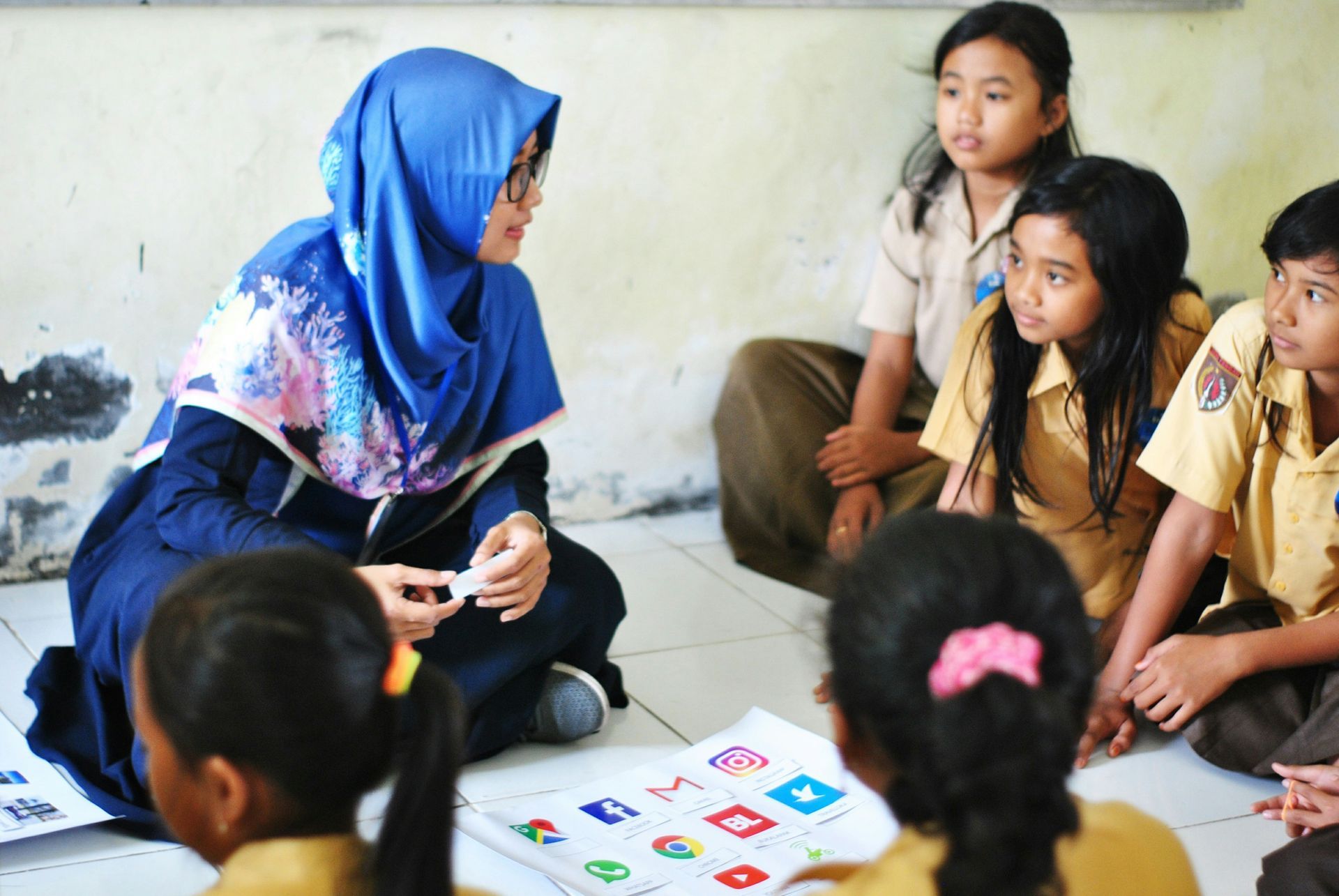






Get our latest insights, opportunities to engage with our networks, and more.
SDSN mobilizes global scientific and technological expertise to promote practical solutions for sustainable development, including the implementation of the Sustainable Development Goals (SDGs) and the Paris Climate Agreement.
Paris
19 rue Bergère
75009 Paris
France
+33 (0) 1 84 86 06 60
New York
475 Riverside Drive
Suite 530
New York NY 10115 USA
+1 (212) 870-3920
Kuala Lumpur
Sunway University
Sunway City Kuala Lumpur
5 Jalan Universiti
Selangor 47500
Malaysia
+60 (3) 7491-8622